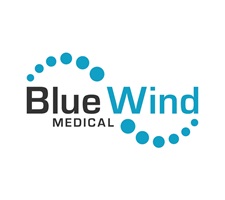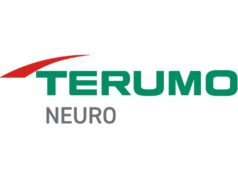 BlueWind Medical has announced that the US Food and Drug Administration (FDA) has granted a de novo marketing request for the Revi system—a “transformative” tibial neuromodulation therapy for the treatment of the symptoms of urgency incontinence alone or in combination with urinary urgency.
BlueWind Medical has announced that the US Food and Drug Administration (FDA) has granted a de novo marketing request for the Revi system—a “transformative” tibial neuromodulation therapy for the treatment of the symptoms of urgency incontinence alone or in combination with urinary urgency.
BlueWind states in a press release that physicians should follow clinical guidelines as applicable and should use their discretion to determine if Revi can be used before patients fail or cannot tolerate more conservative therapy. The de novo grant is for men and women with urge urinary incontinence (UUI), and was based on results from the OASIS pivotal trial in which Revi demonstrated statistically significant improvements in the reduction of symptoms of UUI compared to baseline and a favourable safety profile.
The Revi implant is a small, battery-free device that is implanted near the ankle during a single, minimally invasive outpatient procedure performed under local anaesthesia. When activated, it stimulates the posterior tibial nerve to provide relief from UUI. For activation, a lightweight wireless wearable is placed around the ankle once-to-twice daily to provide stimulation at the patient’s convenience. The patient-centric, battery-free design allows for the Revi implant to be miniaturised to measure 3cm in length and 3mm in diameter, meaning that future surgery for battery depletion, lead fracture, or lead migration, should not be necessary, BlueWind claims.
“UUI is a debilitating, life-altering condition that impacts every aspect of a patient’s life,” said Cindy Amundsen (Duke University School of Medicine, Durham, USA), who is an investigator for the OASIS clinical trial. “The OASIS safety and efficacy data support the Revi device as a new option for those living with the frustrations of UUI. Additionally, while patient management should be based on clinical guidelines, use of this therapy may be considered by a physician’s assessment before patients fail or cannot tolerate more conservative therapy, which could make this single outpatient procedure available to a larger number of patients with UUI.”
OASIS—a prospective, multicentre, single-arm, open-label clinical study of 151 women—was designed to demonstrate the safety and efficacy of Revi in reducing symptoms of UUI, including urinary urgency. Results were presented at the 2023 American Urological Association (AUA) annual meeting (28 April–1 May, Chicago, USA) by John Heesakkers (Maastricht University Medical Center, Maastricht, The Netherlands), the primary investigator for the OASIS trial.
OASIS met its primary endpoint, with results demonstrating a statistically significant improvement as 76.4% of subjects implanted achieved at least a 50% reduction in urge incontinence episodes at six months (p<0.0001). At 12 months, 82% (114/139) of subjects completing the study achieved at least a 50% reduction in urge incontinence episodes. In addition, at 12 months, 49.6% (69/139) of the patients completing the study were 100% dry during a three-consecutive-day assessment. There were no serious procedure or device-related adverse events, and all events that did occur were adjudicated by the study’s clinical event committee as either mild or moderate.
Moreover, BlueWind states in its release, the “patient-centric nature of Revi facilitates individually tailored treatment”, and this resulted in an increased response rate over time. In patients who completed the study, the percentage who experienced a ≥75% reduction in UUI symptoms increased from 52.1% at six months (75/144) to 66.9% (93/139) at 12 months. In addition, subjects who completed the study through 12 months were compliant with once-daily treatments 91.6% of the time.
“The FDA granting of the de novo request for Revi is a critical milestone that underscores BlueWind Medical’s unwavering commitment to developing an innovative alternative treatment option for the millions living with this affliction,” said Dan Lemaitre, chief executive officer of BlueWind. “As we embark on this exciting new chapter, we remain dedicated to our mission of improving the lives of the patients we serve by helping them regain control of their UUI symptoms.”









